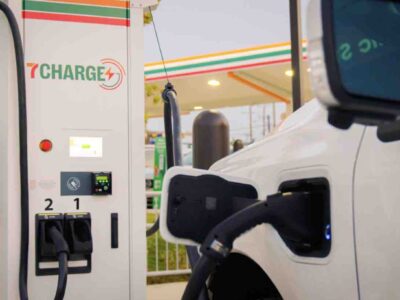
It’s no secret that shareholders have taken an increasing role in holding companies to account for their policies on pollution and their overall carbon footprint. One of those companies, UK-based consumer goods conglomerate Unilever, has taken a proactive approach by letting its shareholders decide if it’s on the right track in developing an effective plan to respond to and mitigate for environmental impacts.
In December, the owner of brands such as Ben & Jerry’s, Lipton, Dove, and Vaseline became the world’s first blue-chip company to put its climate-related goals before a shareholder vote. The vote will take place at Unilever’s annual meeting on May 5. Shareholders will weigh in on a variety of climate initiatives, including Unilever’s plan to reach net-zero emissions by 2039.
In a press release announcing the move, Unilever said it “believes that the economy-wide shift to net-zero emissions will require a greater and deeper level of engagement between companies and their investors about their climate transition plans.”
Unilever’s science-based targets include zero emissions from its own operations by 2030, a 50 percent reduction in the average footprint of its products by 2030, and net-zero emissions within the next two decades.
The $120 billion company decided to put its plans before a vote in the hope that other large corporations will follow its lead.
“We have a wide-ranging and ambitious set of climate commitments – but we know they are only as good as our delivery against them. That’s why we will be sharing more detail with our shareholders, who are increasingly wanting to understand more about our strategy and plans,” said CEO Alan Jope.
Jope added that Unilever aims for complete transparency in its climate plan “both about the areas in our direct control where we have a high degree of certainty of our route to net-zero, as well as more challenging areas across our value chain where systemic solutions will be required to achieve our targets.”
The company’s website outlines four key areas in its goal to halve the environmental footprint of both the production and use of its products:
- Greenhouse gases: This will mainly involve reducing GHG through cleaner, more efficient operations and increased use of renewable energy sources at its factories.
- Water use: One goal is to make manufacturing facilities less dependent on water. Another is to design products that require less water.
- Waste and packaging: The aim here is to reduce waste in operations product design.
- Sustainable sourcing: Unilever’s goal is to ensure that the raw materials it sources are sustainably produced.
One Unilever brand that has made sustainability and social responsibility core to its mission is Ben & Jerry’s, the iconic ice cream company whose co-founders, Ben Cohen and Jerry Greenfield, agreed to sell the business to Unilever in 2000. As part of that deal, Unilever agreed to set up an independent board of directors to act as Ben & Jerry’s benefit corporation director. The board is responsible for the brand’s social and environmental missions.
Unilever’s announcement comes amid rising public pressure on corporations to reduce emissions and increase transparency about climate change goals. In December, 42 prominent U.S. companies – including Amazon and Walmart – wrote a letter urging President-elect Joe Biden to re-enter the Paris Climate Agreement.
“Our communities and our economy are enduring not only a devastating pandemic but also the rising costs of climate change,” the letter said. “Record wildfires, flooding, hurricanes, and other extreme weather are upending lives and livelihoods. And science makes clear that future generations will face far greater environmental, economic, and health impacts unless we act now.”
The message apparently got through. Not only did Congress pass a widely-popular, bipartisan COVID relief package late last year that heavily invested in clean energy initiatives, but in January of this year, President Biden also signed an executive order to have the U.S. rejoin the Paris climate agreement — an international effort to limit greenhouse gas emissions.
Meanwhile, shareholders have become increasingly vocal in demanding more environmental responsibility. In October, shareholders at Procter & Gamble voted for a proposal to make the company more transparent about sourcing and deforestation.
U.S. shareholders at other companies have already filed at least 79 climate-related resolutions in 2021, up from 72 for all of 2020, according to a Reuters article that cited data from the Sustainable Investments Institute. The institute estimated that the count could reach 90 in 2021.
Last May, the Financial Times reported that such resolutions at annual company meetings received average shareholder support of 23 percent through the first five months of the year, vs. 16 percent during all of 2019. Companies that have faced shareholder blowback over pollution practices have ranged from banking giant JPMorgan to international mining firm Rio Tinto and shipping company JB Hunt Transport Services.





